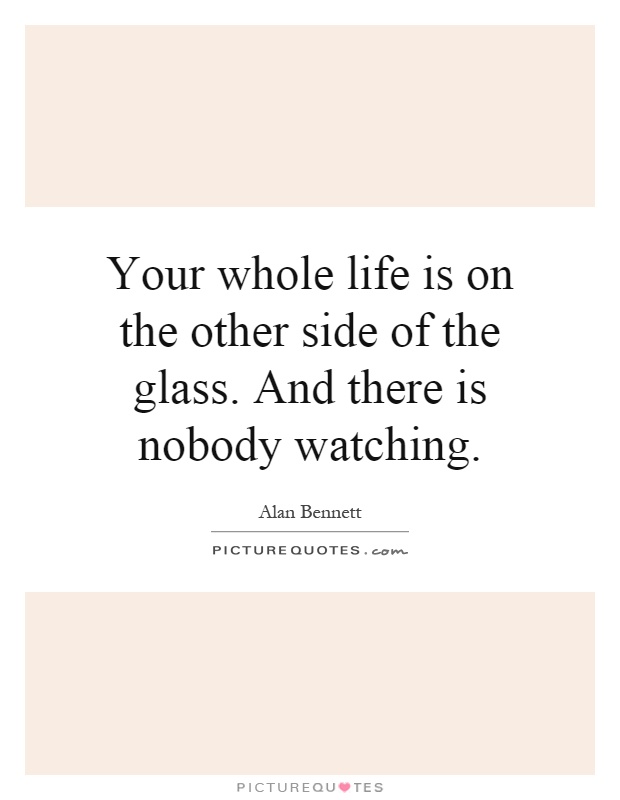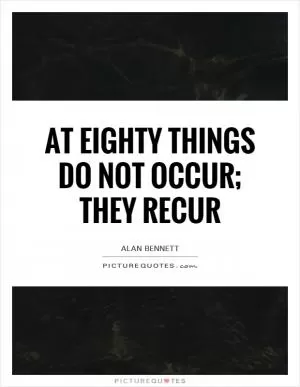Your whole life is on the other side of the glass. And there is nobody watching

Your whole life is on the other side of the glass. And there is nobody watching
Alan Bennett is a renowned British playwright and author known for his sharp wit, keen observations of human nature, and ability to capture the essence of everyday life in his works. One of his most famous works, "The Lady in the Van," explores the themes of loneliness, isolation, and the complexities of human relationships. In this context, the quote "Your whole life is on the other side of the glass. And there is nobody watching" takes on a poignant and introspective meaning.In "The Lady in the Van," Bennett tells the true story of Miss Shepherd, a homeless woman who lived in a van parked in his driveway for 15 years. Through his interactions with Miss Shepherd, Bennett delves into the complexities of human connection and the ways in which we are both connected and isolated from one another. The quote "Your whole life is on the other side of the glass. And there is nobody watching" can be seen as a reflection of Miss Shepherd's life, lived on the margins of society, unseen and unnoticed by those around her.
Miss Shepherd's existence in her van can be seen as a metaphor for the ways in which we all live our lives behind a glass barrier, separated from others by our own fears, insecurities, and societal expectations. We may feel as though we are on display, but in reality, we are often alone, with no one truly seeing or understanding the depths of our experiences.
Bennett's exploration of Miss Shepherd's life challenges us to consider the ways in which we connect with others and the barriers that prevent us from truly understanding one another. The quote "Your whole life is on the other side of the glass. And there is nobody watching" serves as a reminder of the importance of empathy, compassion, and human connection in a world that can often feel isolating and disconnected.












 Friendship Quotes
Friendship Quotes Love Quotes
Love Quotes Life Quotes
Life Quotes Funny Quotes
Funny Quotes Motivational Quotes
Motivational Quotes Inspirational Quotes
Inspirational Quotes